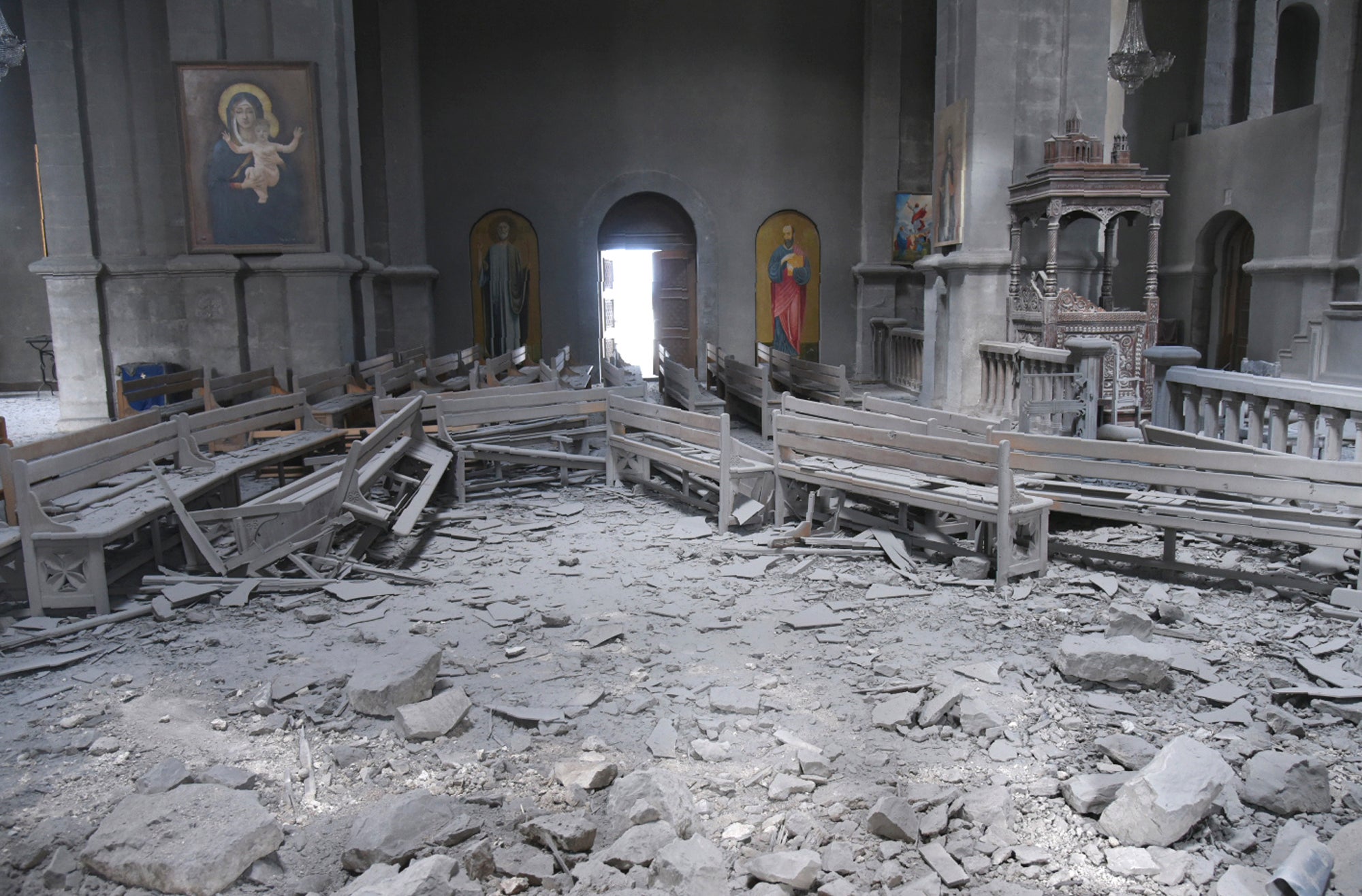Russia tries to sponsor Nagorno-Karabakh cease-fire talks
Russia is moving to stop the worst escalation of fighting in the separatist region of Nagorno-Karabakh in more than a quarter-century by offering to host cease-fire talks

Russia moved to stop the worst escalation of fighting in the separatist region of Nagorno-Karabakh in more than a quarter-century by offering to host cease-fire talks on Friday.
Late Thursday, Russian President Vladimir Putin issued a statement calling for a break in the fighting between the Armenian and Azerbaijani forces that have raged for nearly two weeks over the region. The Kremlin said Putin’s initiative followed a series of calls with Armenian Prime Minister Nikol Pashinian and Azerbaijani President Ilham Aliyev.
The latest outburst of fighting between Azerbaijani and Armenian forces began Sept. 27 and marked the biggest escalation of the decades-old conflict over Nagorno-Karabakh. The region lies in Azerbaijan but has been under control of ethnic Armenian forces backed by Armenia since the end of a separatist war in 1994.
The Kremlin said Putin proposed calling a cease-fire to exchange prisoners and collect the bodies of dead soldiers, adding that the top Azerbaijani and Armenian diplomats were invited to Moscow for consultations.
The Russian Foreign Ministry said they confirmed their attendance Friday, but there was no immediate comment from Armenia or Azerbaijan to the Russian initiative.
Azerbaijani officials and Nagorno-Karabakh separatist authorities said heavy shelling continued overnight.
Fighting with heavy artillery, warplanes and drones has engulfed Nagorno-Karabakh despite numerous international calls for a cease-fire. Both sides have accused each other of targeting residential areas and civilian infrastructure.
On Thursday, a historic cathedral in the town of Shusha in Nagorno-Karabakh came under shelling, a shell piercing its dome and damaging the interior. No one was hurt in the attack, but hours later more shelling wounded two Russian journalists inspecting the damage. The Azerbaijani military denied targeting the cathedral.
According to the Nagorno-Karabakh military, 350 of its servicemen have been killed since Sept. 27. Azerbaijan hasn’t provided details on its military losses. Scores of civilians on both sides also have been killed.
Stepanakert, the capital of Nagorno-Karabakh, has been under intense shelling. Residents are staying in shelters, some of which are in the basements of apartment buildings.
Facing international calls for a cease-fire, Azerbaijan made its acceptance conditional on Armenia’s withdrawal from the region.
Armenian officials allege that Turkey is involved in the conflict and is sending Syrian mercenaries to fight on Azerbaijan’s side. Turkey has publicly backed Azerbaijan in the conflict but has denied sending fighters to the region.
____
Associated Press writers Avet Demourian in Yerevan, Armenia and Aida Sultanova in Baku, Azerbaijan contributed to this report.
Bookmark popover
Removed from bookmarks